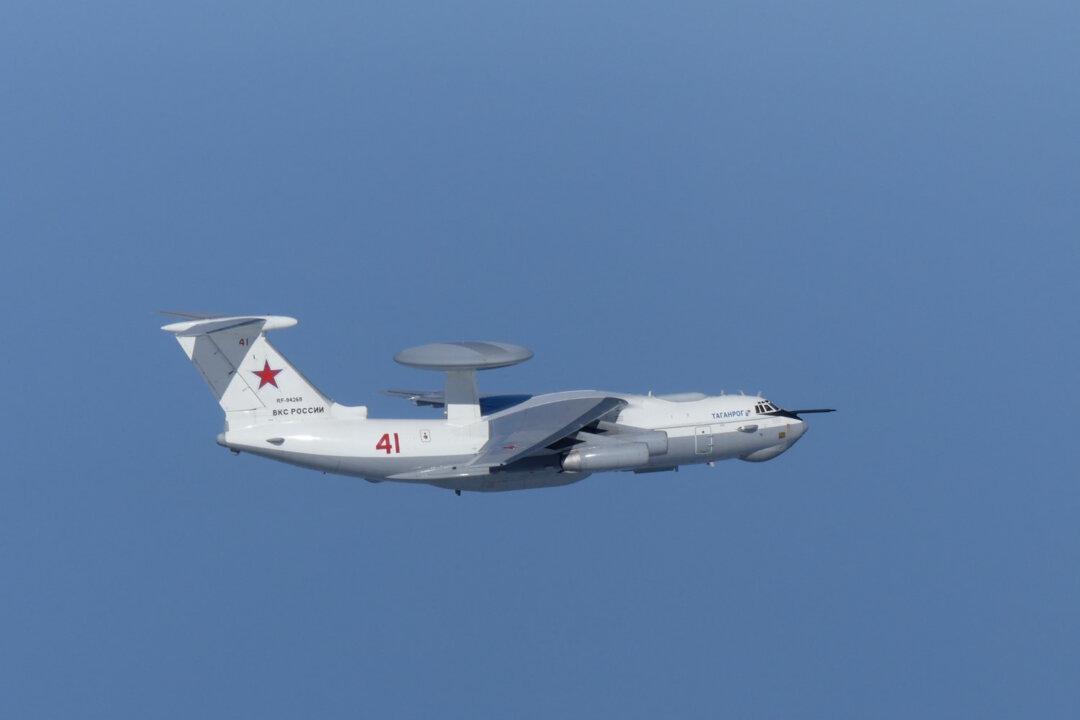The recent intrusion by Russian and Chinese warplanes in airspace over the Sea of Japan was an intentional, carefully planned maneuver designed as a challenge to the United States’ Indo-Pacific strategy, according to South Korean media.
The South Korean and Japanese governments claim the incursion took place July 23, when three Russian warplanes and three Chinese warplanes flew near a group of islets, known as Dokdo and Takeshima, respectively. The two countries both claim the islets as their own territory.





